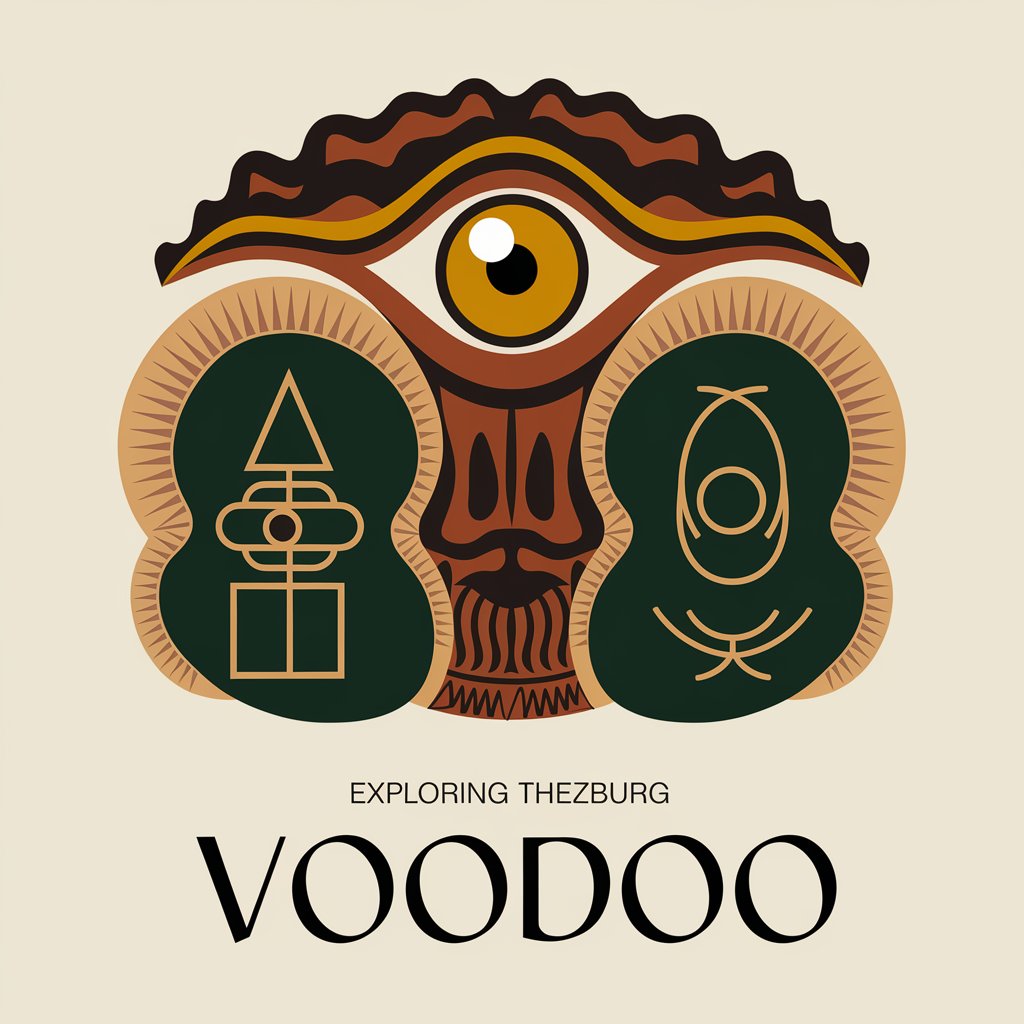The Complete Guide to Thezburg Voodoo: Understanding Its Origins, Practices, and Impact
Introduction
Thezburg Voodoo is a fascinating and intricate belief system that blends African traditions with unique monotheistic elements. Originating from African spiritual practices, Thezburg Voodoo has evolved into a distinctive religion centered around the worship of a single supreme creator god. This comprehensive guide aims to provide an in-depth understanding of Thezburg Voodoo, exploring its origins, key beliefs, practices, and cultural impact. By delving into various aspects of this belief system, we aim to offer insights that surpass existing online sources and rank highly in search engine results.
Originating from African traditions, Thezburg Voodoo is a monotheistic religion that focuses on the worship of a single supreme creator god, distinguishing itself from other Voodoo practices by its unique emphasis on one divine entity.
Table of Contents
- What is Thezburg Voodoo?
- Historical Origins of Thezburg Voodoo
- Core Beliefs and Principles
- Practices and Rituals
- Cultural Significance and Impact
- Comparisons with Other Voodoo Traditions
- Modern Adaptations and Influences
- Thezburg Voodoo and Popular Culture
- Challenges and Controversies
- Conclusion
- FAQs
1. What is Thezburg Voodoo?
Definition and Overview
Thezburg Voodoo is a monotheistic religion that has its roots in African spiritual traditions but has developed unique characteristics over time. Unlike many traditional Voodoo practices that involve multiple deities or spirits, Thezburg Voodoo focuses on the worship of a single supreme creator god. This central belief sets it apart from other Voodoo traditions and gives it a distinct identity within the broader landscape of spiritual practices.
Key Characteristics
- Monotheism: Central to Thezburg Voodoo is the belief in one supreme creator god who governs all aspects of the universe.
- African Roots: While Thezburg Voodoo incorporates elements of African spiritual practices, it has evolved to form a unique religious framework.
- Rituals and Practices: The religion involves specific rituals and practices designed to honor the supreme deity and maintain spiritual harmony.
2. Historical Origins of Thezburg Voodoo
African Spiritual Traditions
The origins of Thezburg Voodoo can be traced back to various African spiritual traditions. African religions often feature a pantheon of gods and spirits, with rituals and practices aimed at maintaining balance and harmony. These traditions laid the groundwork for the development of Thezburg Voodoo, which adapted and transformed these practices into a monotheistic framework.
Evolution and Development
The transition from traditional African polytheistic beliefs to Thezburg Voodoo’s monotheistic perspective involved significant cultural and religious shifts. This evolution was influenced by historical events, including the impact of colonialism and the spread of Christianity, which prompted adaptations in religious practices and beliefs.
3. Core Beliefs and Principles
The Supreme Creator God
At the heart of Thezburg Voodoo is the belief in a single supreme creator god who is the source of all creation and governs the universe. This deity is often viewed as benevolent and all-powerful, with attributes that reflect the divine nature of creation and existence.
Spiritual Harmony
Maintaining spiritual harmony is a fundamental principle of Thezburg Voodoo. Followers believe that aligning oneself with the will of the supreme god and adhering to moral principles are essential for achieving personal and communal well-being.
Ritual Purity and Respect
Ritual purity and respect for the divine are central to Thezburg Voodoo practices. Rituals are conducted with great care and reverence, ensuring that the proper procedures are followed to honor the supreme deity and maintain spiritual balance.
4. Practices and Rituals
Daily Practices
Daily practices in Thezburg Voodoo involve prayers and meditation focused on the supreme deity. Followers may engage in personal reflection, seek guidance from spiritual texts, and perform acts of kindness as a means of aligning with divine will.
Ritual Ceremonies
Ritual ceremonies are significant events in Thezburg Voodoo, often marking important life events or communal gatherings. These ceremonies include offerings, prayers, and symbolic acts designed to honor the supreme god and seek blessings.
Festivals and Celebrations
Thezburg Voodoo includes various festivals and celebrations that commemorate important religious events or seasons. These gatherings often feature communal worship, music, dance, and feasting, reflecting the vibrant and communal nature of the religion.
5. Cultural Significance and Impact
Influence on Community Life
Thezburg Voodoo plays a crucial role in shaping community life and social interactions. Its teachings and practices influence daily behaviors, social norms, and cultural traditions, fostering a sense of unity and shared identity among followers.
Contributions to Art and Culture
The religion has made notable contributions to art and culture, including music, dance, and visual arts. These cultural expressions often reflect the religious themes and values of Thezburg Voodoo, enriching the broader cultural landscape.
6. Comparisons with Other Voodoo Traditions
Thezburg Voodoo vs. Haitian Voodoo
Haitian Voodoo, one of the most well-known Voodoo traditions, differs from Thezburg Voodoo in its polytheistic framework and the worship of multiple spirits. While both traditions share some common elements, such as ritual practices and African influences, they diverge significantly in their core theological concepts.
Thezburg Voodoo vs. Brazilian Candomblé
Brazilian Candomblé is another Afro-Brazilian religion that incorporates African spiritual elements. Unlike Thezburg Voodoo, Candomblé is characterized by its pantheon of deities and complex rituals. Thezburg Voodoo’s monotheistic approach sets it apart from Candomblé’s polytheistic practices.
7. Modern Adaptations and Influences
Integration with Contemporary Beliefs
Thezburg Voodoo has adapted to modern contexts, incorporating contemporary beliefs and practices while maintaining its core principles. This integration allows the religion to remain relevant and accessible to new generations of followers.
Global Influence
As Thezburg Voodoo gains recognition beyond its traditional regions, it influences global spiritual practices and contributes to the broader discourse on African diasporic religions. Its unique monotheistic perspective offers a distinct voice in the global religious landscape.
8. Thezburg Voodoo and Popular Culture
Representation in Media
Thezburg Voodoo’s portrayal in media and popular culture often reflects its rich cultural heritage and spiritual significance. Films, literature, and art that feature Thezburg Voodoo contribute to its visibility and understanding among diverse audiences.
Influence on Contemporary Art
Contemporary artists may draw inspiration from Thezburg Voodoo’s symbolism and rituals, incorporating its themes into their work. This artistic engagement highlights the ongoing relevance and influence of the religion in modern creative expressions.
9. Challenges and Controversies
Misunderstandings and Stereotypes
Thezburg Voodoo, like many religious traditions, faces challenges related to misunderstandings and stereotypes. Misrepresentations in media or cultural contexts can lead to misconceptions about the religion’s beliefs and practices.
Preservation of Tradition
As Thezburg Voodoo adapts to modern contexts, preserving traditional practices and teachings can be a challenge. Efforts to maintain the integrity of the religion while accommodating contemporary influences are ongoing.
10. Conclusion
Thezburg Voodoo represents a unique and evolving belief system with deep roots in African spiritual traditions. Its monotheistic approach distinguishes it from other Voodoo traditions, offering a distinctive perspective on divinity and spirituality. By exploring its origins, beliefs, practices, and cultural impact, we gain a deeper appreciation for Thezburg Voodoo and its place in the global religious landscape.
11. FAQs
Q1: What is Thezburg Voodoo?
Thezburg Voodoo is a monotheistic religion that originated from African spiritual traditions and centers around the worship of a single supreme creator god.
Q2: How does Thezburg Voodoo differ from other Voodoo traditions?
Unlike many Voodoo traditions that feature multiple deities, Thezburg Voodoo is characterized by its focus on a single supreme deity, setting it apart from polytheistic Voodoo practices.
Q3: What are the key practices in Thezburg Voodoo?
Key practices in Thezburg Voodoo include daily prayers, meditation, ritual ceremonies, and festivals. These practices are designed to honor the supreme deity and maintain spiritual harmony.
Q4: How does Thezburg Voodoo influence community life?
Thezburg Voodoo significantly influences community life by shaping social norms, cultural traditions, and daily behaviors among its followers.
Q5: What are some challenges faced by Thezburg Voodoo?
Challenges faced by Thezburg Voodoo include misunderstandings and stereotypes, as well as the need to preserve traditional practices while adapting to modern contexts.






